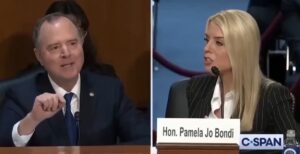Wall Street Sees Recession Risk Due To Trade Tensions
Wall Street analysts are increasingly concerned about the prospect of a recession in the United States, driven by rising trade tensions and recent tariff announcements by President Trump.
Renewed trade conflicts, economic indicators, and changes in taxation policy have led to a reassessment of recession probabilities by leading financial firms.
Wall Street is on high alert after several major financial institutions, including Moody's, Goldman Sachs, and J.P. Morgan, announced upward revisions to their U.S. recession forecasts. The catalyst for such revisions stems largely from growing trade disputes and recently declared tariffs, notably President Trump's decision to implement reciprocal tariffs.
Economic Warnings Prompted by New Tariffs
As of April 2, President Trump will enact new tariffs in what he has dubbed "Liberation Day." These tariffs include a 25% duty on imported cars, set to take effect the next day, potentially escalating trade tensions to a more critical level. The potential for retaliatory measures from international trade partners is causing significant concern among U.S. exporters, affecting their prospects in foreign markets.
Moody's chief economist, Mark Zandi, has expressed apprehension due to recent economic signals, citing decreased consumer confidence, sluggish consumer expenditure, and persistent inflation concerns. Zandi's current assessment places a 40% probability of the onset of a recession this year, a significant increase from earlier estimates.
Zandi emphasized the importance of consumer confidence in economic health. "Last week's economic data were disconcerting," he remarked, pointing to lackluster consumer spending and continually high inflation, which are critical indicators of economic performance.
Mixed Signals in the Labor Market
Despite these concerns, Zandi noted that low rates of layoffs and positive growth in jobs and incomes provide a level of reassurance against an immediate downturn. This Friday's job report for March will be instrumental in providing further insight into the economy's trajectory.
"The jobs report is crucial," Zandi stated. "A payroll gain of fewer than 100,000 would be troubling, while anything over 200,000 would be a promising sign." However, he warned that ongoing trade conflicts and taxation policy changes, like the so-called "DOGE cuts," might fuel recession fears regardless of job figures.
Goldman Sachs economists also raised their recession odds to 35%, citing a reduction in their growth baseline and a decline in both household and business confidence. The firm noted that recent messages from White House officials suggest a greater acceptance of short-term economic vulnerabilities.
Federal Insight on Economic Conditions
Although confidence levels have proven unreliable predictors in recent years, Goldman Sachs regards the current decline more seriously. According to their analysis, real income growth has reduced significantly and is expected to hover at a modest 1.4% this year.
J.P. Morgan's own analytics correspond to an increased recession risk of 40%, attributing this to the potential for significant policy and sentiment shifts to disrupt even a stable expansion.
Federal Reserve Chair Jerome Powell addressed the financial community's growing concerns without endorsing explicit forecasts. He acknowledged that expectations have shifted, yet maintained that probabilities remain moderate. "We're seeing some raised recession forecasts, but they're still at relatively moderate levels," Powell conceded. "Two months ago, the likelihood was viewed as very low."
All eyes are now on upcoming economic reports and how the ongoing tariff implementations influence market dynamics. While the U.S. economy has demonstrated resilience in the face of previous challenges, today's volatile trade climate presents unique and complex obstacles. The response from Wall Street reflects an acknowledgment of such risks, underscoring the urgent need for monitoring and adjustment.


